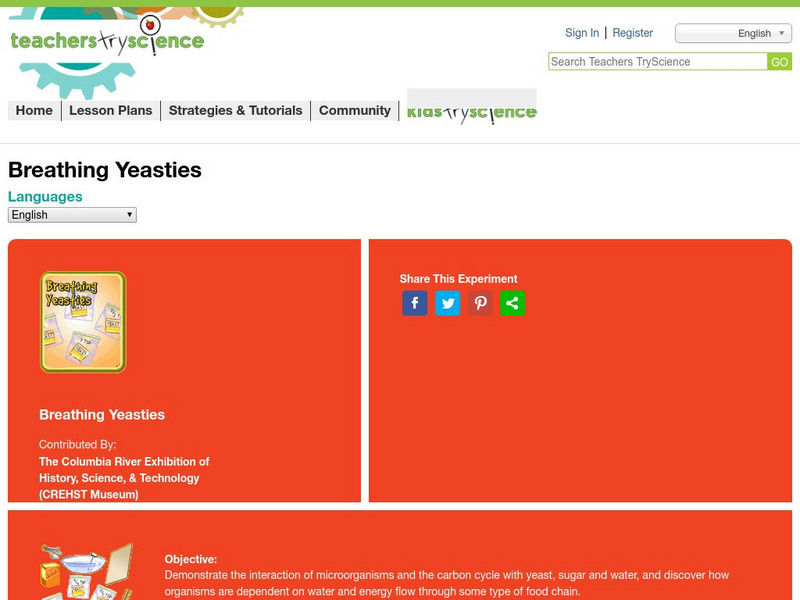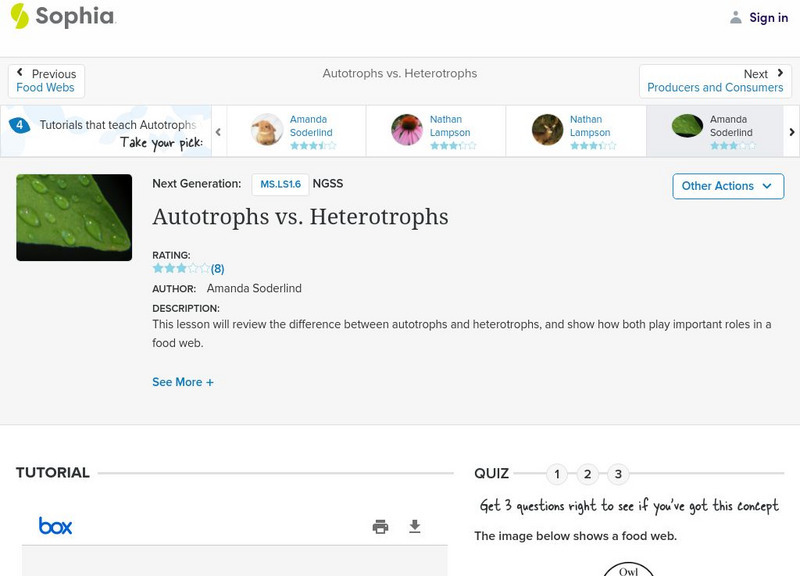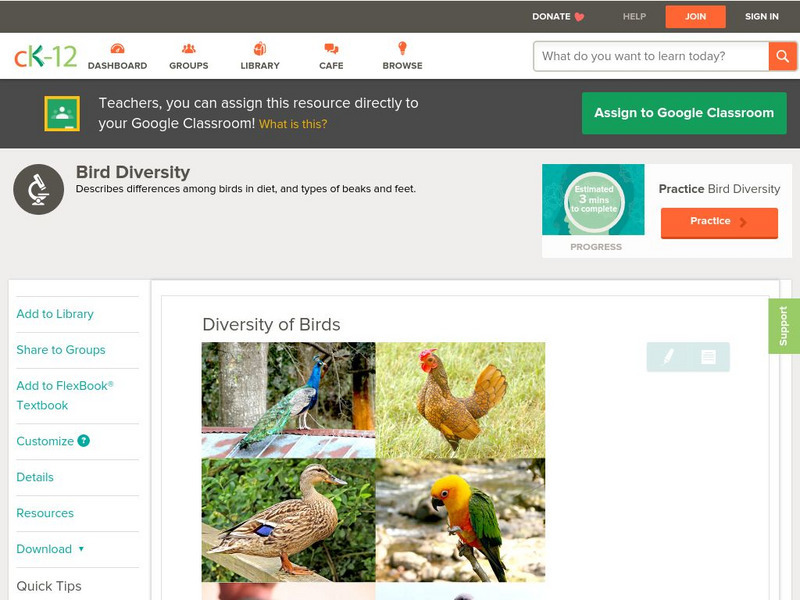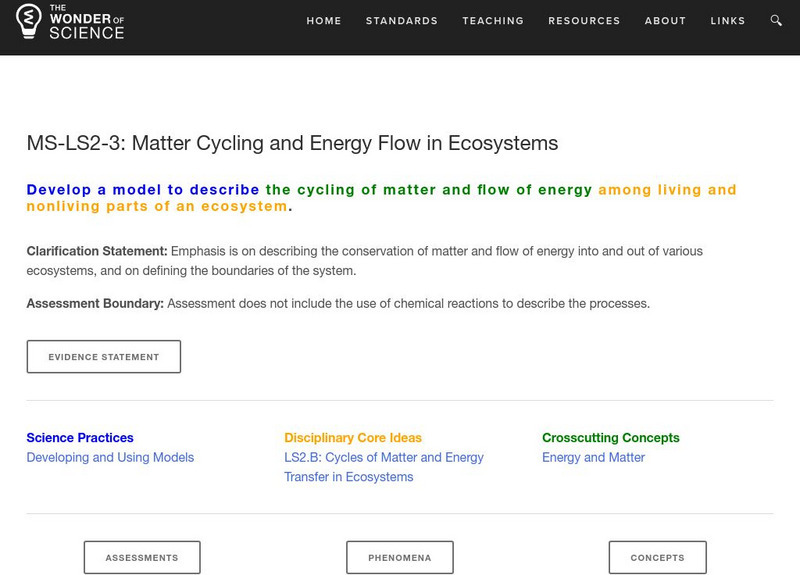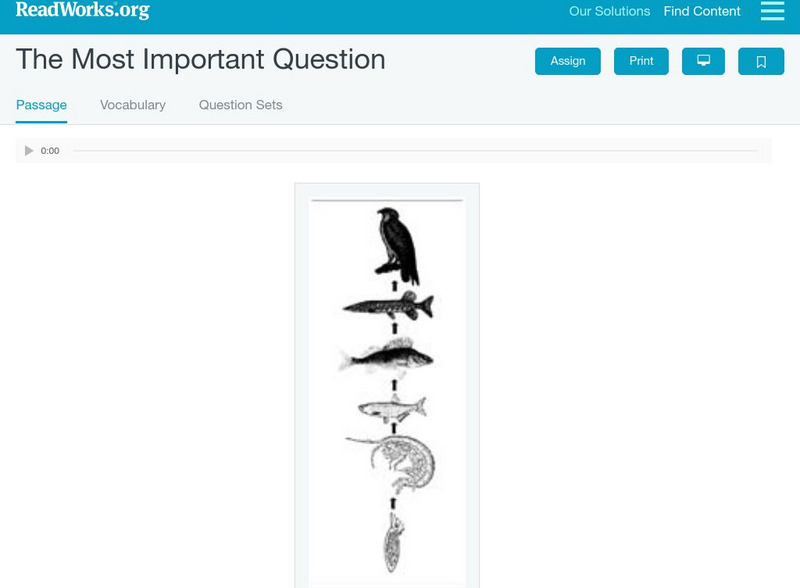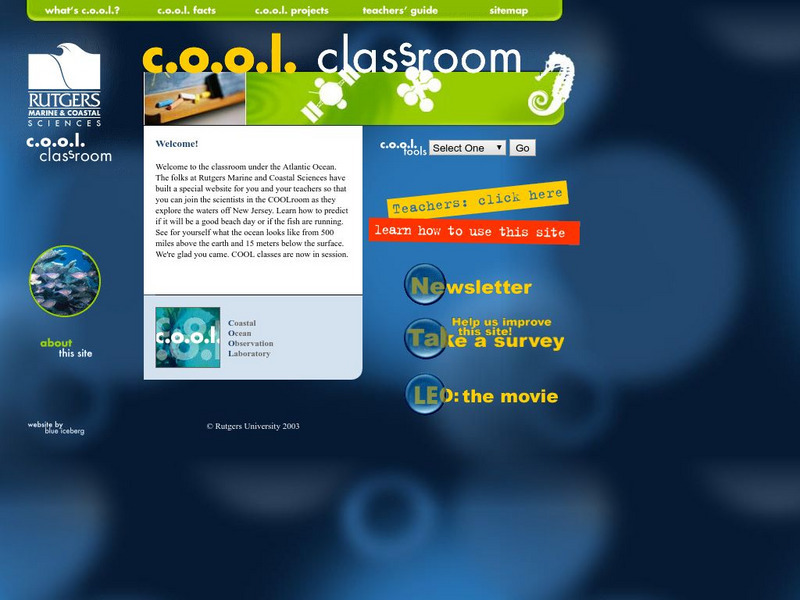Science Struck
Science Struck: Examples of Tertiary Consumers
Explains what is meant by a tertiary consumer in a food chain and provides examples.
ArtsNow
Arts Now Learning: Ecosystems in Action [Pdf]
For this lesson, 4th graders explore animals and plants that inhabit ecosystems by using movement to deepen the retention of vocabulary. After reviewing the ecosystem players, students will play a call and response game by responding...
ArtsNow
Arts Now Learning: Using Tableau and Role Drama to Examine the Ecosystem [Pdf]
In this lesson, 4th graders use tableaux to dramatize their roles in the food chain of an ecosystem. Next, they write in role arguing why they are important to the ecosystem. This is followed by a debate in the format of a Character...
Teachers TryScience
Teachers Try Science: Breathing Yeasties
See how combining yeast, sugar, and water can demonstrate the carbon cycle and show how microorganisms work in the food chain.
Polk Brothers Foundation Center for Urban Education at DePaul University
De Paul University: Center for Urban Education: Changing the Ecosystem [Pdf]
"Changing the Ecosystem" is a one page, nonfiction, reading passage about the disruption in the food chain due to habitat loss and pollution and the results of that disruption. It is followed by questions which require students to...
Sophia Learning
Sophia: Autotrophs vs. Heterotrophs: Lesson 2
This lesson will review the difference between autotrophs and heterotrophs, and show how both play important roles in a food web. It is 2 of 4 in the series titled "Autotrophs vs. Heterotrophs."
PBS
Pbs: Nature: The Fascinating World of Jellies
Learn about the mysterious jellyfish blooms that have occurred in the world's oceans. Because the resulting alteration to the marine food web has had devastating effects, researchers grow and study jellyfish at the Monterey aquarium....
PBS
Pbs Teachers: Predator Protector Game Lesson
Describe the habitat, food web and ecosystem of shark species. Identify threats to sharks and explore how top predators help to maintain the balance of nature within ecosystems. This lesson plan also contains an interactive game.
Curated OER
National Park Service: Moon Crater Ecosystems Lesson Plan
This is a teacher's guide to a lesson on ecosystems. The objective is for the students to set up their own ecosystem and define the roles of producers, consumers and scavengers.
Georgia Department of Education
Ga Virtual Learning: Biology: Ecology I
A comprehensive ecology learning module where students assess the dependence of all organisms on one another and the flow of energy and matter within their ecosystems.
CK-12 Foundation
Ck 12: Life Science: Diversity of Birds
[Free Registration/Login may be required to access all resource tools.] About 10,000 bird species belong to 29 different orders within the class Aves. The diversity among birds is striking. Birds can vary greatly in size and color. Some...
BBC
Bbc Schools: Living Things: Food Chains Quiz
How are animals and plants linked? What is the difference between a producer and consumer? How is a predator different from prey? Take this food chain quiz to find out the answers to these questions and more. Links allow you to convert...
PBS
Nh Pbs: Nature Works: Producers and Consumers
This concise site that provides an explanation of what producers are along with a short quiz to test your knowledge of producers and consumers.
Science Bob Pflugfelder
Science bob.com: Food Web and Food Chains
The difference between food chains and food webs is explained.
CK-12 Foundation
Ck 12: Earth Science: Flow of Energy in Ecosystems
[Free Registration/Login may be required to access all resource tools.] Describes how energy is transfered from one organism to another.
The Wonder of Science
The Wonder of Science: Ms Ls2 3: Matter Cycling and Energy Flow in Ecosystems
Work samples, phenomena, assessment templates, and videos that directly address standard MS-LS2-3: matter cycling and energy flow in ecosystems.
Read Works
Read Works: The Most Important Question
[Free Registration/Login Required] A literary text about some animals who have to learn to share their space around the pond. A question sheet is available to help students build skills in reading comprehension.
Bill Nye
Bill Nye: Planaria Fishing
In this tutorial, Bill Nye explains how to catch planeria, small carnivorous worms that live in ponds. In addition, he explains their role in the environment.
CK-12 Foundation
Ck 12: Earth Science: Flow of Energy in Ecosystems
[Free Registration/Login may be required to access all resource tools.] Describes how energy is transferred from one organism to another.
SMART Technologies
Smart: Energy Flow in an Ecosystem
Students learn about Abiotic and Biotic Factors and how they affect the ecosystem in which an animal might live in.
Other
Rutgers Marine & Coastal Sciences: Cool Classroom
Students and teachers can explore the work of marine scientists and observe the ocean from their computers. Learn about Rutgers Coastal Ocean Observation Laboratory, discover why oceanography is important, and see what life is like in...
TeachEngineering
Teach Engineering: Biodomes
Students explore the biosphere's environments and ecosystems, learning along the way about the plants, animals, resources and natural cycles of our planet. Over the course of lessons 2-6, students use their growing understanding of...
Open Curriculum
Open Curriculum: Flow of Energy in Ecosystems
Students will understand and describe food chains and food webs, and explain how energy is transferred between their trophic levels.
ClassFlow
Class Flow: What Animals Eat
[Free Registration/Login Required] To show the dependence of animals on the plant world, these flipchart pages contain examples of food chains and food webs, as well as other information about animals and habitats.
Other popular searches
- Food Webs and Chains
- Ecology Food Webs Chains
- Food Webs and Food Chains
- Ocean Food Chains and Webs
- Food Webs Chains
- Food Webs Food Chains
- Food Webs, Food Chain



